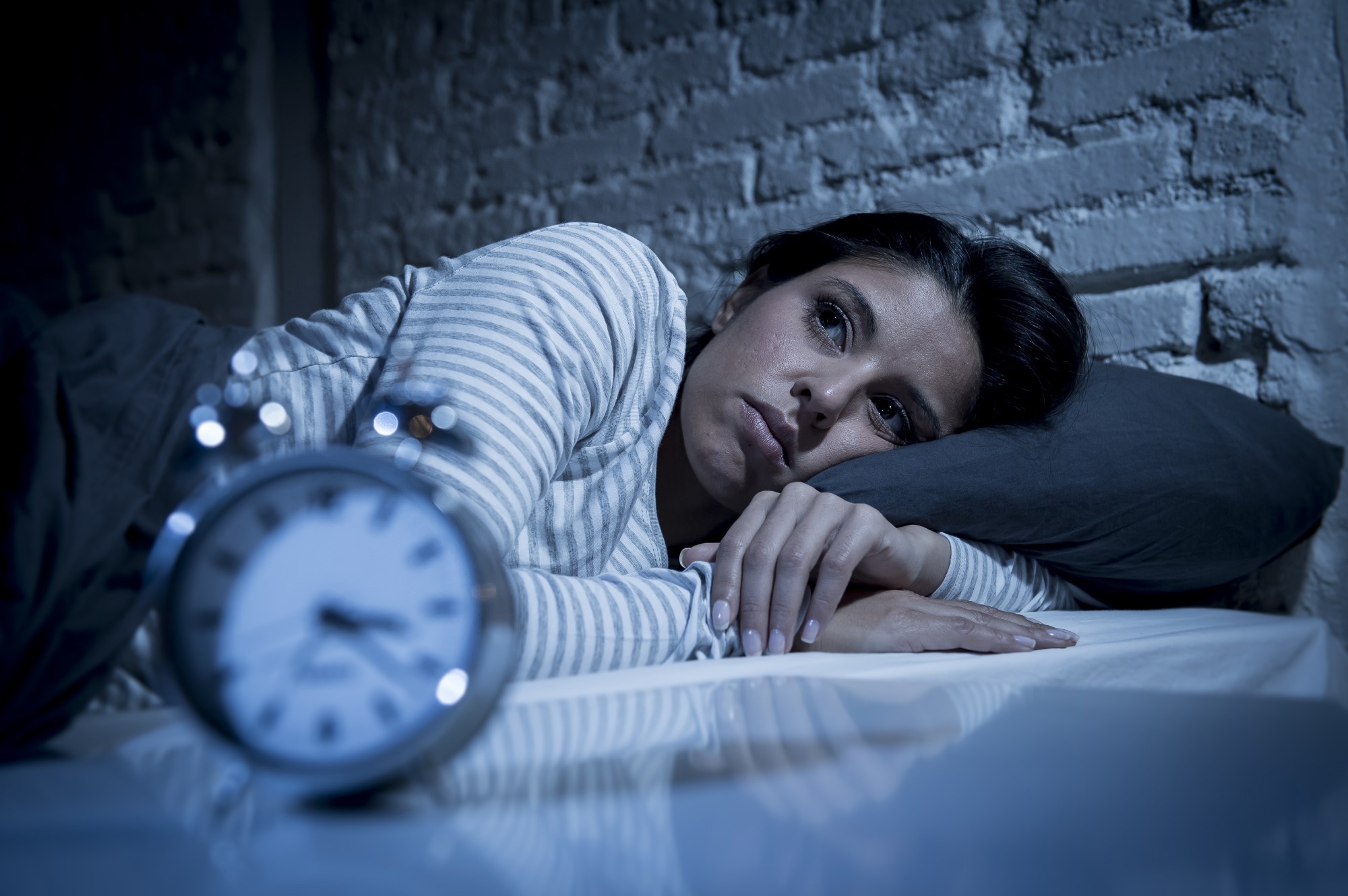The rapid transmission of the severe acute respiratory syndrome coronavirus 2 (SARS-CoV-2) led to the coronavirus disease 2019 (COVID-19) pandemic. COVID-19 is primarily a respiratory disease that manifests a wide range of symptoms, from mild to severe.
 Study: Association between Acute Respiratory Distress Syndrome Due to COVID-19 and Long-Term Sleep and Circadian Sleep–Wake Disorders. Image Credit: Marcos Mesa Sam Wordley / Shutterstock.com
Study: Association between Acute Respiratory Distress Syndrome Due to COVID-19 and Long-Term Sleep and Circadian Sleep–Wake Disorders. Image Credit: Marcos Mesa Sam Wordley / Shutterstock.com
Background
SARS-CoV-2 infection has significantly increased global hospitalization rates, particularly the intensive care unit (ICU) occupation rate. One previous study indicated that at least 5% of the global population had developed ARDS, which could cause respiratory failure and the need for intermittent mandatory ventilation (IMV) support. These patients are also at a higher risk of developing renal, cutaneous, cardiovascular, and hematological disorders.
Previous studies have reported that patients with ARDS develop alterations in sleep, including poor sleep quality, insomnia, obstructive sleep apnea (OSA), and fragmentation of the rest-activity rhythm for short or long periods. Severe to moderate OSA was found to be highly prevalent in ARDS linked to SARS-CoV-2 infection.
Research on COVID-19 has indicated that hospitalized patients experience persistent symptoms, even after being discharged. However, few studies have investigated the long-term sequelae of ARDS patients after ICU discharge.
About the study
The current prospective, observational cohort study investigated alterations in sleep health and circadian rest-activity rhythm in ARDS patients among COVID-19 survivors within 12 months of hospital discharge.
All relevant data was obtained from the Complejo Asistencial Dr. Víctor Ríos Ruiz and Hospital Regional Dr. Guillermo Grant Benavente in Chile. Clinical data from these hospitals were extracted four and 12 months after medical discharge.
Real-time reverse transcription polymerase chain reaction (rRT-PCR) tests confirmed SARS-CoV-2 infected patients between April 2020 and July 2020 were included in the study. All study participants were 18 years of age and older.
The study cohort was classified into ARDS and non-ADRS groups. The ARDS group included SARS-CoV-2 patients who required mechanical ventilation during their ICU stay, whereas the non-ARDS group included COVID-19 patients with mild to moderate symptoms. The non-ADRS group did not require hospitalization for SARS-CoV-2 infection.
The study excluded patients above 70 years of age with a history of respiratory comorbidities and those who required oxygen supplementation or non-IMV after COVID-19 hospitalization. Patients who developed severe mental or physical disabilities were also excluded.
All relevant information about the patients, including their age, comorbidities, sex, place of residence, and alcohol and tobacco use, were obtained at baseline. All participants completed sleep questionnaires to determine the Pittsburg Sleep Quality Index (PSQI), Epworth Sleepiness Scale (ESS), and Insomnia Severity Index (ISI). A home sleep apnea test (HSAT) was also performed based on American Academy of Sleep Medicine (AASM) recommendations.
A seven-day wrist actigraphy test was performed, which provided a daily measure of total sleep time (TST) (min), time in bed (TIB) (min), and sleep efficiency (SE) (%). The circadian function index (CFI) was also measured.
Study findings
A total of 52 candidates were considered for the study, including 32 and 21 patients in the ARDS and non-ARDS groups, respectively. The median age of these candidates was 49 years, 54% of whom were male. Hypertension was a common comorbidity among the study cohort.
ARDS patients were older than non-ARDS patients and exhibited higher insulin resistance. Almost 50% of the ARDS group had less than eight years of schooling.
Over 91% of COVID-19 survivors experienced poor sleep quality 12 months after hospital discharge, about 50% of whom reported experiencing daytime sleepiness. About 59% of patients experienced insomnia.
No difference in sleep quality or circadian health was observed between ARDS and non-ARDS groups. A higher prevalence of comorbid OSA and insomnia (COMISA) was observed in the ARDS group 12 months after medical discharge.
Conclusions
The current study has several limitations, including its nest cohort and small sample size. Another limitation was the use of subjective measures of different sleep-related parameters, such as ESS, ISI, and PSQI. Since baseline estimations of sleep quality and circadian function were not conducted due to the COVID-19 pandemic, the study findings must be interpreted with caution.
Despite these limitations, the study findings provide important insights into the impact of COVID-19 hospitalization on sleep health and the circadian rest-activity pattern. More specifically, a higher prevalence of poor sleep quality was observed among COVID-19 survivors with ADRS 12 months after hospital discharge. However, no significant alteration in the circadian rest-activity rhythm was observed between ADRS and non-ADRS groups.
Journal reference:
- Henriquez-Beltran, M., Benitez, I., Belmonte, T., et al. (2023) Association between Acute Respiratory Distress Syndrome Due to COVID-19 and Long-Term Sleep and Circadian Sleep–Wake Disorders. Journal of Clinical Medicine 12(20); 6639. doi:10.3390/jcm12206639